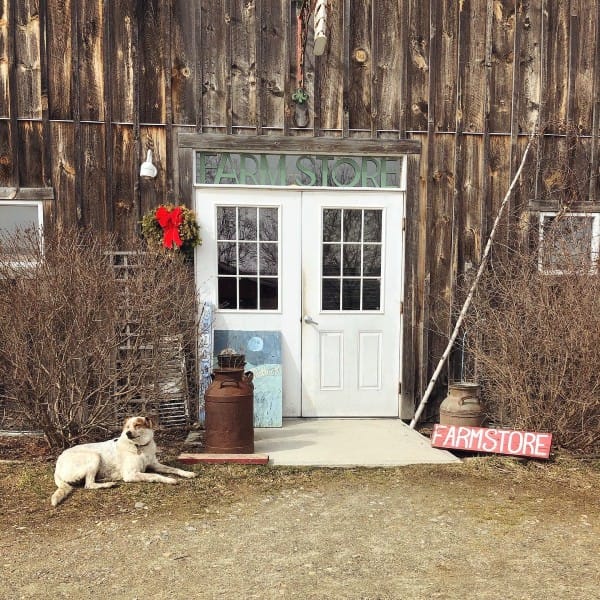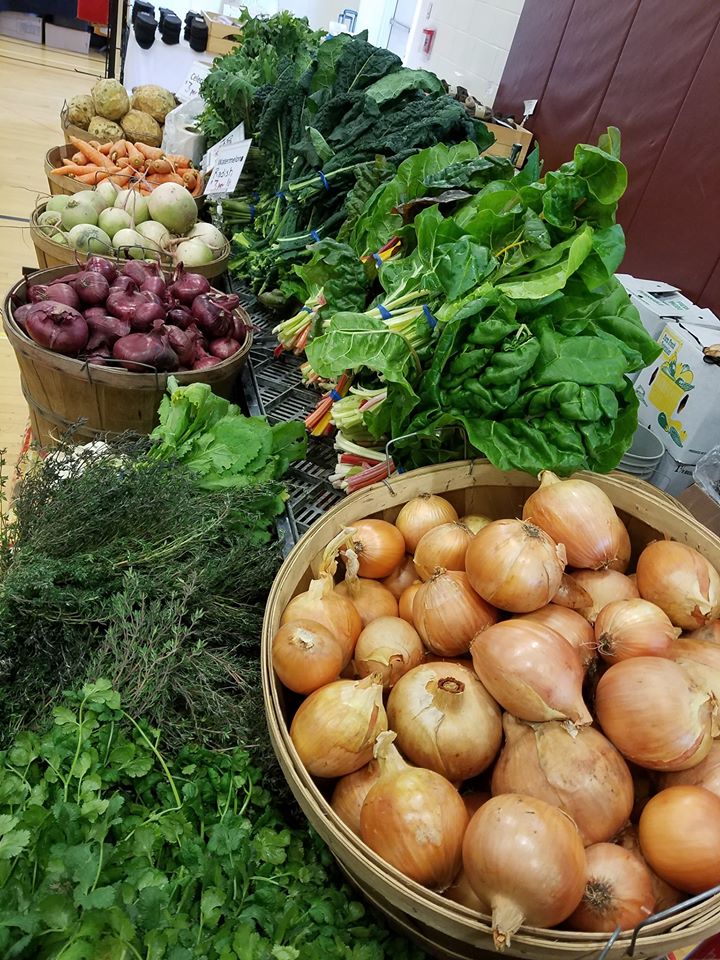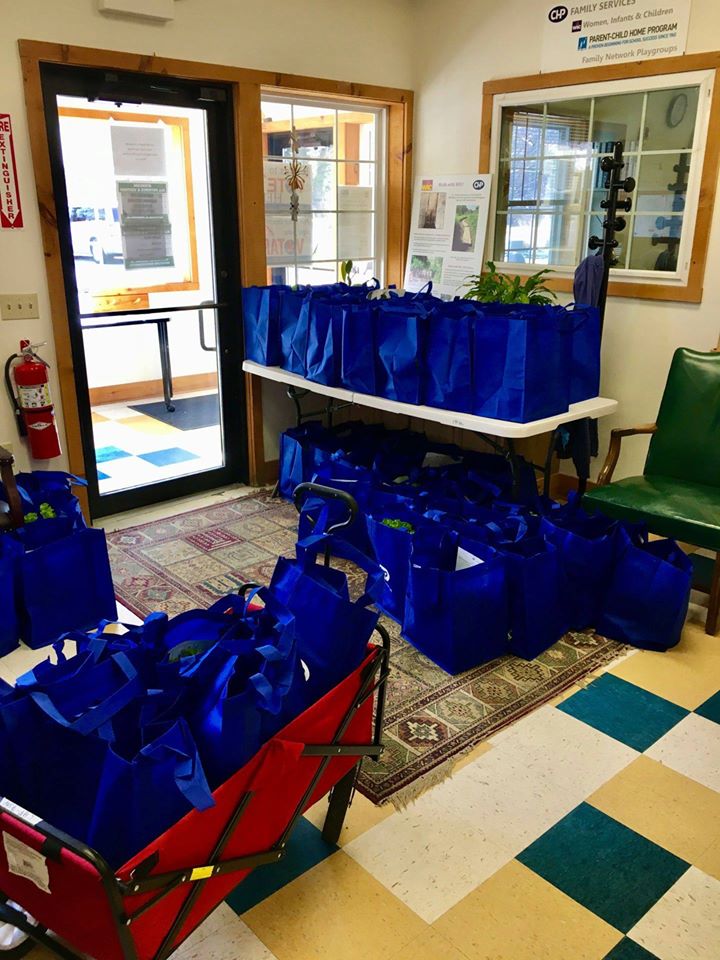Farms on the Front Line: Berkshire Farms are Vital During COVID-19 Shutdown
Farms and ag organizations in the Berkshires are finding new ways to feed the community during the pandemic.

Farms and ag organizations in the Berkshires are finding new ways to feed the community during the pandemic.

Photo provided by Cricket Creek Farm
How is the Covid-19 pandemic affecting access to farm-fresh food throughout the RI region? This week, we look at the Berkshires’ immediate response.
The COVID-19 pandemic is straining the integrity of the supermarket-centric food system. With many Americans hoarding goods, local farms and farm stands are now vital resources. Contacting the farms in your immediate area to discover what they have available for purchase and how to obtain it (while maintaining social distancing) is a great way to stay stocked at home while supporting local agribusiness.
“We’re lucky to live in an area where our farms are such a central part of our lives,” said Berkshire Grown Executive Director Margaret Moulton. “The farmers are used to supplying us with their food. The challenge now is access.”

Offerings at the Berkshire Grown indoor farmers market shortly before the Covid-19 shutdown. (Photo provided by Berkshire Grown)
In recent days, Berkshire Grown has become an even more vital hub for regional information on how and where to source farm products responsibly. The news section of the site is being updated constantly with information on how to support each individual farm, and what’s available.
Many farms in the Berkshires are quickly establishing their own online ordering pages. Clean pickup options and deliveries are becoming more and more common each day. High Lawn Farm, for example, has expanded its online ordering and now it can all can be paid for in advance and picked up on site with minimal person-to-person interaction. Other farms with online ordering and onsite pickup include Mill River Farm, North Plain Farm and Cricket Creek Farm.
Cricket Creek Farm, located in Williamstown, has its on-site farm store open daily from 7a.m. to 7 p.m., and it's fully stocked with milk, eggs, cheese, beef, pork, flour, and many other groceries. "We accept cash, cards, and checks," said Operations Manager Beatrix (Trixie) A. Wessel. "The farm store is self-serve, so folks are frequently able to come and go without crossing paths with anyone else. We are sanitizing door handles and common spaces regularly. It's also calving season, so we have many young calves available for folks to come see — a nice distraction, and a great way to enjoy the outside and get out and about while still practicing social distancing."
Cricket Creek's new expanded services are emblematic of many of their peers' new offerings. Other farms and markets offering new and expanded home delivery of local meats, produce and other products include Random Harvest, Square Roots Farm, Jacuterie and Sky View Farm. Berkshire Organics, which has been delivering products directly from farms to front doors in the region for over a decade, is uniquely poised to help given their existing infrastructure and dedicated delivery vehicles.
Buying directly from farms is not an option for everyone, so farmers and organizations across the Berkshires are working with market retailers to get more products into stores. Those that already source heavily from local farms include Guido’s Fresh Marketplace, Wild Oats, Hawthorne Valley Farm Store and the Berkshire Food Co-op. Inquire online for the latest information on pre-order and curbside pickup options at any market location.

Fresh vegetable shares made available to the community at CHP Great Barrington. (Photo provided by Berkshire Grown)
Berkshire County farmers are also working together with agricultural agencies like Berkshire Grown, Community Health Programs and the Great Barrington Farmers Market to come up with new ways to get food to people in need, especially those who are already impacted by food scarcity. Abode Farm CSA recently delivered 260 pounds of carrots and 140 pounds of potatoes to Community Health Programs for distribution to Project Backpack for Berkshire Hills Regional School District families. Abode will also deliver 120 pounds of potatoes to the New Lebanon School's Project Backpack. Other farms are doing the same and their efforts to support the hungry throughout our community is all the more reason to support them in turn.
As this period of social isolation rolls on into the spring and summer, CSA shares are a great way to plan ahead and, as always, the down payment is a major part of how farmers fund their planting season. Moulton said she’s hearing from farmers that their CSA signups are skyrocketing and is encouraged that the increase in direct buying will help supplement the losses expected from the likely cancellations of farmers markets, which have become an integral way for small farms to generate revenue and build relationships with customers.

Photo provided by Berkshire Grown.
Moulton said there is an ongoing regional conversation about how online farmers markets can be created quickly.
“Farmers markets are so important but if it’s not socially responsible to bring people to the same spot, then what can you do that mimics that. We, as a coalition, have to create a virtual market,” she said. “Is that now the role of organizations like Berkshire Grown? I don’t know. We are an office of three people. But those are the kinds of things we are talking about right now. How do we get food to access points?”
Moulton said that for people living in the Berkshires, the solution to food access challenges caused by the pandemic will likely be a combination of two things: the creation of a virtual market to streamline ordering and delivery; and individuals personally connecting with, and sourcing from, their neighboring farms. While the reconfiguration of our local agricultural economy is going to be a complicated process for farms, consumers and support organizations like Berkshire Grown, it’s reassuring that the farming culture that formed and sustained the Berkshires for centuries is still here to support the community through this modern crisis.